http://www.southasiaanalysis.org/papers29/paper2854.html
The Great Non-Proliferation Charade
- Bhaskar Roy
When Prime Minister Dr. Manmohan Singh delivers his address to the UN General Assembly on September 26, he would be aware of the last ditch efforts in Washington to scuttle the India-US nuclear deal in the Congress.
The effort is to both force pro-deal congressmen and empower anti-deal congressmen, to attach as stringent restrictions as possible if the deal if passed, and ensure even India’s indigenous nuclear programme is shackled.
Dr. David Albright of the Institute of Science and International Security (ISIS), a Washington based non-government think tank came out with a paper that in 2006 sensitive drawings of a centrifuge, used to enrich uranium for nuclear bombs, were made available to bidders for an Indian government project for as little as 10 dollars.
The report was published on the day the Senate Committee was to meet on the 123 deal. The report also said India’s non-proliferation institution was suspect and vulnerable. Obviously, the aim was to influence the Senate Committee negatively.
The ISIS followed up with another report claiming that Pakistan was putting up a third plutonium producing reactor at its Kushab facility which will greatly enhance the country’s bomb producing capability.
While the ISIS assertion is no new revelation on, the mischief in the two reports is the warning that a clear 123 deal will enhance India’s nuclear capability, and that a nuclear arms race has already started.
Albright’s assertions defy commonsense. How could a Pakistani nuclear weapons programme started around 2002 have been influenced by the India-US civilian nuclear agreement discussions which started only in 2005?
A media report quotes John Ritter, Chief UN weapons inspector between 1991 and 1998 having said, “David Albright has a history of being used by those who seek to gain media attention for their respective claims”. Ritter also dismissed Albright’s claim as an “expert” as a “disservice to the term” and “misleading in the extreme”.
Ritter’s credibility is unchallenged. His deposition that Iraq no longer had a nuclear programme proved accurate despite the Iraq invasion by the US and its coalition forces in 2003.
David Albright’s lie about India seeking centrifuge technology is mailed squarely by a press release of September 19 the Department of Atomic Energy, of the Indian government that the drawing attributed to is of a convoluted tube for various applications and does not reveal any sensitive information.
The question, therefore, arises about Dr. David Albright – why he allows himself to be used by interested parties? As it is popularly said, “There is no free meal in the USA”. The interests against India lie mainly in China and its forward nuclear base, Pakistan.
The anti-India non-proliferation lobby in Washington can be divided broadly into two categories. One is the old cold warriors who refuse to see India from any other view than a partner of the erstwhile Soviet Union – hence support old cold war allies China and Pakistan against India. The other is the group personified by Dr. David Albright and Daryl Kimbal, the kind defined by John Ritter.
Amidst this shrill propaganda to label India as a proliferator at the worst, and as unreliable and unable partner to prevent proliferation from its institutions at the best, a major issue needs to be addressed. How will the global regimes including the NSG deal with those countries who proliferate with impunity and lie through their teeth to deny their violations, especially among the so-called legitimate nuclear weapon powers?
Since David Albright’s ISIS raised the issue of Pakistan’s Kushab plutonium reactors, the international community regimes like the NSG have no alternative but to address the issue openly and frankly.
The Kushab facility, otherwise known as the Kushab Chemical Plant (KCP) is moving towards its third and fourth plants. KCP-I is a heavy water reactor required for plutonium production. KCP-II is the first plutonium production reactor. The KCP-III, referred to as the second plant by the ISIS report started construction around 2002 with Chinese assistance. The KCP-IV is also with Chinese assistance, but commencement of work on this reactor is yet to be confirmed.
The initial KCP reactors were set up by the Chinese on a turn-key basis. KCP-III is not totally turn-key, as the Pakistani scientists and engineers have been trained adequately in China and technology has been transferred. Pakistan still lacks in certain areas and, therefore, illegal Chinese cooperation is expected to continue for some more time.
Through the entire 1990s till date, China has remained very much involved in Pakistan’s nuclear weapons and strategic programme. China’s state owned entities floated front companies to procure various nuclear related items for Pakistan, including specialized machinery to dig silos for Pakistan’s nuclear missiles.
Pakistan’s missile arsenal, mostly nuclear capable, is still being assisted by Chinese designs, components and telemetry system among others. One does not need secret reports to decipher these. The signatures are all over when they test a missile.
The NSG is charged with the responsibility to take a decision on these proliferations which is making the South Asian region a dangerous ground.
The NSG must answer this basic question:.Are NSG members allowed to proliferate or should they be expelled from the NSG and other such non-proliferation regimes?
If the NSG is serious about non-proliferation this is the point to start from.
(Bhaskar Roy is an eminent analyst with many years of experience in political analysis. He can be reached at grouchohart@yahoo.com)
Related story:
Why India upset @ http://specials.rediff.com/news/2008/sep/24sld1.htm
skip to main |
skip to sidebar

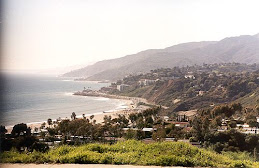
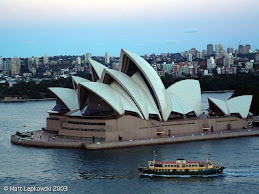
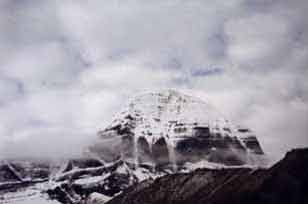


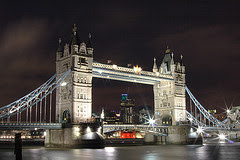


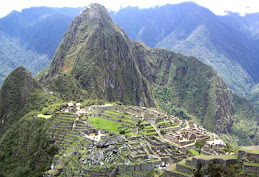



Don't put the key to your
happiness
in someone else's pocket.
INTERFAITH

Informative Links
Bharat Raagini
Incredible : INDIA
Dil Hai Hindustani
Aana Hai Tou Aa
Jagte Raho
Behti Hai Ganga
Insaaf Ka Mandir
Los Angeles,USA

Sydney, AUSTRALIA

Himalayas, India

Swiss Alps

Eiffel Tower,Paris

Tower Bridge, London

Grand Place, Brussels

SUNRISE

Machu Picchu, PERU

Venice

Modern Art

Pencil sketch

Think about this;
Don't put the key to your
happiness
in someone else's pocket.